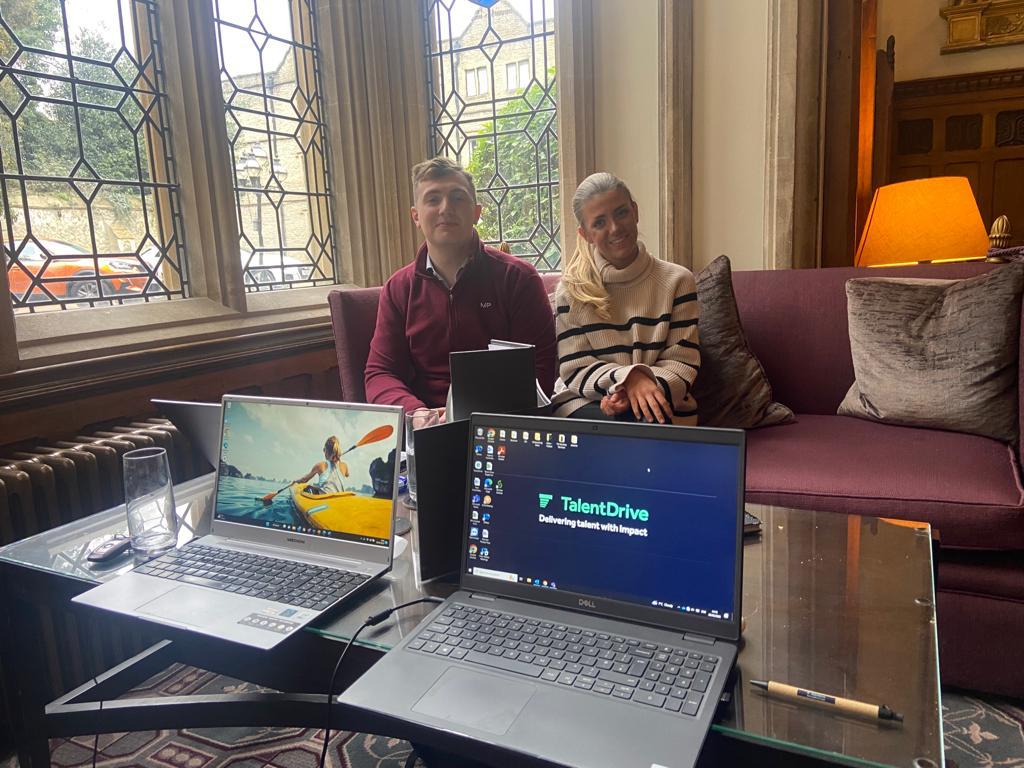Since the pandemic loosened its grip on the UK, the topic of ‘remote working’, ‘flexible working’ or ‘working from home’ has been a controversial one, as many employers grapple with whether to re-enforce compulsory office time, or to embrace a hybrid model.
This does of course depend on the industry you work in – for example, here at Talent Drive we operate a flexible working policy which we feel brings a strong balance to our culture and the way we operate.
Martin Smith, Founder at Talent Drive, explains why he decided to implement this:
“As an employer, Talent Drive want to ensure all employees are empowered to work where they feel comfortable to work. We operate a flexible working model where the team have full access to our co working spaces at any of the WeWork offices across the UK when they need it. We can also use this great space to meet all our candidates and clients and balance this with embracing technology, so we have all the latest tools and tech to access our candidates remotely as well to help build engagement and relationships with our network!”
This model brings many benefits to both employer and employee, as Beth, our Senior Recruitment Consultant was keen to emphasise;
“As an employee at Talent Drive, the flexible working they offer is very important to me as I have 2 young children. The flexible working enables me to still pursue a career in recruitment which I absolutely love but to also not miss out on precious moments with my children and to still be there at school pickups. As a recruiter I have seen how attractive work from home/flexible working opportunities are to candidates and this can be a big contributing factor why candidates are leaving current positions if they don’t get any flexibility”

1.Increased productivity (less commute time and a better work-life balance)
2. Reduces stress and burnout
3. Promotes a healthy work-life balance
4. Better job satisfaction
5. Attracting top talent
A recent study by Global Workplace Analytics found that 95% of employers saw an improvement in employee retention rates once a remote working environment had been successfully implemented.
There are of course, also some disadvantages to offering flexible working for employers. Employers effectively take a gamble when they grant a flexible working request – for flexible arrangements to work there must be give and take on both sides. If not carefully managed, flexible working can potentially lead to inefficiencies and a drop in quality and communication.
This was a question asked recently by Supply Management, who asked; while Covid brought a shift to flexible working practices, recent cost pressures have prompted Elon Musk-style conservatism. In today’s environment, is there room for both?
Matthew Wigginton, head of procurement and contract management at West Sussex County Council, said;
“Resilience is built through trust and flexibility. We need to say we will come together one or two days, but it’s about making it a bit more of an enjoyable experience when we do. Procurement needs to be working with its customer base, and not in a remote location sat in a distant office – we need to be face to face. We need to be there not just within our own little procurement huddle, but also with our customers working in their environments so we understand what their situations and challenges are, and so we can work with them so we’re seen as part of their team, rather than a remote service. Having that face-to-face time is so important, because I don’t think you can have a team really working entirely remotely”
Lionel van der Walt, chief growth officer at Raft, said;
“Our industry is more traditional in terms of leadership styles. For instance, if you look at attitudes to flexible working, I think we are behind many others. At the start of Covid most people wanted to work remotely, but over time people missed the warmth and value of in-person interactions which make relationship-building easier. People want autonomy to make these decisions, and flexibility to achieve a balance between in-person and remote work. But most of us need social interaction and a sense of belonging, and fully remote working doesn’t satisfy these needs. And, obviously, many jobs cannot be performed remotely, such as ground handling or port operations, so that doesn’t lend itself to flexibility”
Read the full article HERE.
We’d love to know your thoughts on flexible working, especially in the procurement sector!


